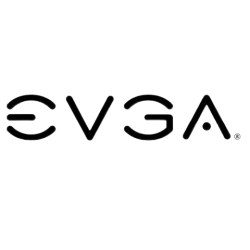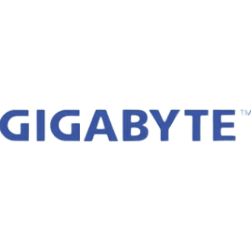
Comparison of GIGABYTE Radeon RX 5700 8G et EVGA GeForce GTX 1080 SC GAMING Now is the perfect time to figure out which graphics card delivers the highest performance, what sets them apart, and the reasons behind those differences.
In front of you is a detailed comparison between the GIGABYTE Radeon RX 5700 8G and the EVGA GeForce GTX 1080 SC GAMING to assist you in selecting the best card for your needs, we will examine their specifications, benchmark scores, and overall performance, guiding you toward an informed decision.
Comparing the GIGABYTE Radeon RX 5700 8G to the EVGA GeForce GTX 1080 SC GAMING analyzing performance in various popular benchmarks highlights the key differences between these models. By understanding the distinctions between these two cards, you’ll be able to choose the best option for your needs, whether you’re a gamer, content creator, or someone seeking pure processing power..
GIGABYTE Radeon RX 5700 8G: boasts a maximum frequency of 1.465 GHz GHz + 6%. It is equipped with 8 GBGB of RAM. The memory type is GDDR6. It was released in Q3/2019.
EVGA GeForce GTX 1080 SC GAMING: It has a maximum clock speed of 1.708 GHz+ 6 % GHz. It comes with 8 GBGB of memory. The memory type is GDDR5X. Released in Q1 Q2/2016.
 Raisons de considérer
Raisons de considérer Place dans le classement général
(sur la base de plusieurs critères de référence)
Positions communes GIGABYTE Radeon RX 5700 8G GPU dans des benchmarks populaires, pour comparaison avec d'autres modèles.
 Raisons de considérer
Raisons de considérer Place dans le classement général
(sur la base de plusieurs critères de référence)
Vitesse d'horloge plus élevée
Autour de 14% une meilleure vitesse d'horloge
Positions communes EVGA GeForce GTX 1080 SC GAMING GPU dans des benchmarks populaires, pour comparaison avec d'autres modèles.
 GIGABYTE Radeon RX 5700 8G
GIGABYTE Radeon RX 5700 8G

This section provides a detailed comparison of the fundamental technical specifications of the graphics cards GIGABYTE Radeon RX 5700 8G et EVGA GeForce GTX 1080 SC GAMING. It provides essential details like the GPU architecture, the number of processing units, and other key features that significantly influence the overall performance of the cards across different applications, including gaming and professional tasks..
This section provides a comparison of the memory configurations of GIGABYTE Radeon RX 5700 8G et EVGA GeForce GTX 1080 SC GAMING. It includes details such as the memory size, type (e.g., GDDR6, HBM2), and bandwidth, which are key factors that determine how efficiently the card handles large textures, data sets, and high-resolution tasks.Larger memory sizes are typically beneficial for demanding applications like 4K gaming and video editing.
This section focuses on comparing the clock speeds of GIGABYTE Radeon RX 5700 8G et EVGA GeForce GTX 1080 SC GAMING. It covers both the base and boost clock speeds, which have a direct impact on GPU performance during demanding tasks. Higher clock speeds generally result in smoother frame rates in games and faster processing in compute-intensive applications..
This section examines the thermal design of GIGABYTE Radeon RX 5700 8G et EVGA GeForce GTX 1080 SC GAMING. It provides information on power consumption (in watts) and thermal output during normal use and overclocking. Effective thermal management is crucial for ensuring stable performance during extended gaming sessions or other intensive tasks..
This section compares the cooling systems of GIGABYTE Radeon RX 5700 8G et EVGA GeForce GTX 1080 SC GAMING. It includes details about the types of coolers (e.g., blower or open-air) and the number and size of fans, which play a crucial role in maintaining optimal temperatures during operation.Effective cooling is essential for preventing thermal throttling and extending the longevity of the GPU.
This section compares the connectivity options available on GIGABYTE Radeon RX 5700 8G et EVGA GeForce GTX 1080 SC GAMING. This includes details on the number and types of ports, such as HDMI, DisplayPort, and others, which are crucial for connecting monitors and external devices..This information assists in identifying which card provides more flexible or up-to-date connectivity features..
This section compares the technical specifications of GIGABYTE Radeon RX 5700 8G et EVGA GeForce GTX 1080 SC GAMING. It highlights key features such as API support for DirectX, OpenGL, and Vulkan, which are crucial for running modern games and applications efficiently.These specifications ensure compatibility and optimal performance across a wide range of software environments.
This section compares the support for video codecs on GIGABYTE Radeon RX 5700 8G et EVGA GeForce GTX 1080 SC GAMING. It highlights the built-in capabilities for compressing and decompressing video formats such as H.264, H.265 (HEVC), and VP9, which are important for tasks like video editing and streaming.
This section compares the physical dimensions of GIGABYTE Radeon RX 5700 8G et EVGA GeForce GTX 1080 SC GAMING. It covers the size, weight, and slot requirements, which are key factors in ensuring compatibility with your PC case, particularly for smaller or more compact setups..
This section provides additional information about GIGABYTE Radeon RX 5700 8G et EVGA GeForce GTX 1080 SC GAMING. It covers aspects such as release dates, interface compatibility, and other unique features that might not be covered in other sections.This helps users make a more informed decision about the suitability of each card for their specific use case.
By reviewing the results from several well-known benchmarks, you can more accurately assess the performance differences between GIGABYTE Radeon RX 5700 8G et EVGA GeForce GTX 1080 SC GAMING.
Compare the synthetic benchmark results and select the best graphics card for your needs!